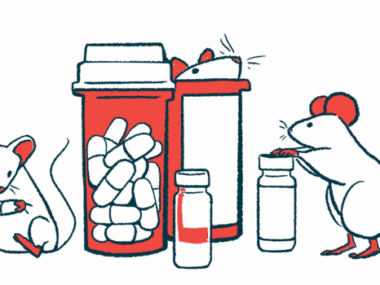When Help Isn’t Helpful
Written by |

A few years ago, I was chatting with a friend who was the primary caregiver for a family member with a terminal condition. Even though our stories were different, we had enough in common with caring for a terminally ill loved one that we could connect and have the “real talk” that many caregivers can’t have with someone outside our community.
My friend was completely responsible for her family member’s care, and she was also working full time. It wasn’t easy, and many people reached out wanting to help. Much of that help came in the form of promoting self-care to my friend. Massage and spa gift cards were plentiful.
While she appreciated the gesture, she admitted that the gifts weren’t particularly useful, and created additional pressures that she didn’t have the emotional energy to navigate.
“I don’t have the time or energy to use them,” my friend told me. “So many people want to feel helpful that they don’t stop to think if what they are doing actually is helpful.”
At the end of October, a social media post about toilet paper and Cheez-Its went viral. In the post, a woman reached out to her friend who had suffered a miscarriage and offered choices of help. These choices included watching the friend’s children, sending a meal, doing an errand, or being able to politely decline all help options.
The internet exploded with how brilliant these offerings were. It resonated because we, as humans, desperately want to help the people we care about. However, we also tend to be very terrible at offering good help — that is, the kind of help someone would actually benefit from. As the parent of a child with Sanfilippo syndrome, I hear about this issue often in our community.
Providing help that is helpful shouldn’t be so difficult, but it is. It’s why we struggle to say the “right” thing (and often fail to do so) when people we care about are in crisis. Out of fear that we will do something “wrong,” we sometimes step away from the ones we love in difficult times.
We say, “Let me know if there is anything I can do,” putting the burden of asking on the person needing help, while giving no parameters of what we, the helper, are willing to do. We set up meal trains or give massage gift cards without asking if those are wanted, or if they would create an additional burden in terms of scheduling or forced social interaction.
“Helpees” are conditioned to take the help offered, even if it’s not necessarily useful or desired, because they know the helpers are well-intentioned, or because they don’t have the energy to give explanations and politely decline. As helpers, we then burden the people we care about, as they don’t want to appear rude in the face of kind gestures.
That was the brilliance of the Cheez-Its story to me: One of the choices offered was to politely turn down help. Sometimes people going through crisis just do not have the mental energy to accept help, make specific asks, or engage in the social interaction that comes with help.
So, how can we become better helpers to the people we care about who are experiencing difficulty? Firstly, we need to make sure that we center our offers of help around the helpee and their needs, and not around ourselves and what we think would be helpful, and that these offers don’t overburden the helpee. Giving concrete choices (including the choice to opt out) is a great way to determine what type of help would be useful and appreciated.
We also need to make sure we don’t overwhelm the person. A good example of this comes from an essay published at Today. When a 28-year-old woman was diagnosed with terminal cancer, her co-workers, wanting to support her but not overwhelm her, created a schedule where one of them wrote her a thoughtful letter every week. This allowed the woman to have a regular ritual of support that sustained her long-term instead of a rush of prayers and sympathy upfront that would eventually trail off.
One of the best ways we can help people in crisis, though, is to be available to listen, and listen attentively, but only if and when the person is ready to talk. When you take the time to be that quiet support and listening ear, you will hear what the person is struggling with and what they need. Then, you can offer informed help — the help that will truly help.
And isn’t that what’s most important?
***
Note: Sanfilippo News is strictly a news and information website about the syndrome. It does not provide medical advice, diagnosis, or treatment. This content is not intended to be a substitute for professional medical advice, diagnosis, or treatment. Always seek the advice of your physician or other qualified health provider with any questions you may have regarding a medical condition. Never disregard professional medical advice or delay in seeking it because of something you have read on this website. The opinions expressed in this column are not those of Sanfilippo News or its parent company, Bionews, and are intended to spark discussion about issues pertaining to Sanfilippo syndrome.






Leave a comment
Fill in the required fields to post. Your email address will not be published.